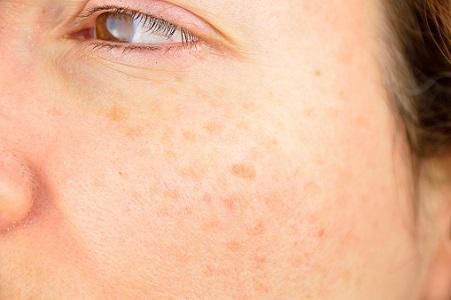Actinic Keratosis - Abu Dhabi - Dubai
Actinic keratosis, also known as solar keratosis, is a common skin condition characterized by rough, scaly patches or lesions that develop on the skin, particularly on areas exposed to the sun. It is considered a precancerous condition because if left untreated, it can progress to squamous cell carcinoma, a type of skin cancer.
Here are some key points about actinic keratosis:
Causes:
- 1. Sun exposure: Prolonged exposure to ultraviolet (UV) radiation from the sun is the primary cause of actinic keratosis. It commonly affects individuals with fair skin who have spent a significant amount of time outdoors without proper protection.
- 1. Rough, scaly patches: Actinic keratosis typically appears as rough, scaly patches or lesions on the skin. They may be flat or slightly raised and can range in color from pink to brown.
- 2. Itching or burning: In some cases, actinic keratosis may cause itching, burning, or stinging sensations.
- 3. Sensitivity to touch: The affected areas may be sensitive when touched or exposed to certain irritants.
- 1. Topical medications: Creams, gels, or solutions containing medications such as fluorouracil, imiquimod, diclofenac, or ingenol mebutate can be applied directly to the affected skin to help eliminate actinic keratosis lesions.
- 2. Cryotherapy: Liquid nitrogen is used to freeze and destroy the abnormal cells.
- 3. Curettage and desiccation: The lesions are scraped off with a curette and then the base is treated with an electric needle to destroy any remaining abnormal cells.
- 4. Photodynamic therapy (PDT): A photosensitizing agent is applied to the skin, followed by exposure to a specific wavelength of light to destroy the affected cells.
- 5. Laser therapy: Laser treatment can selectively target and destroy actinic keratosis lesions.
- 1. Sun protection: Minimize sun exposure during peak hours (10 am to 4 pm) and use protective measures such as wearing broad-brimmed hats, long-sleeved clothing, and sunscreen with a high sun protection factor (SPF).
- 2. Regular skin examinations: Monitor your skin for any changes or new lesions and consult a dermatologist if you notice any suspicious growths.
Symptoms:
Treatment:
Prevention:
It is important to remember that actinic keratosis should not be ignored, as it has the potential to progress to skin cancer. If you suspect you have actinic keratosis or have concerns about any skin abnormalities, it is advisable to consult a dermatologist for proper diagnosis and treatment.

